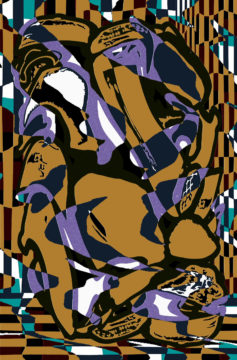 Paul Grimstad in The Baffler:
Paul Grimstad in The Baffler:
ON MARCH 12, 1955, Charlie Parker collapsed in the Baroness Pannonica de Koenigswarter’s Upper East Side apartment after a three-day booze binge. The improviser of superhuman poise was dead at thirty-four, eliciting solemn observance from musicians and fans, particularly those who’d been hanging around Minton’s Playhouse in Harlem where, in the early 1940s, a new kind of music called bebop had been invented. “Bird has disintegrated into pure sound!” is said to have been overheard somewhere near the Five Spot on Cooper Square, the Beat tavern where much bad poetry was recited, and where some great musicians nightly turned the style that came out of Harlem into ever more febrile and kinked contortions. Part of the Bird enigma was the impossible fusion of musical angel and reptilian addict, a miraculously graceful artist who might steal your horn and pawn it for smack.
Four months after Bird’s death, his one-time personal assistant Miles Davis seduced everyone at the Newport Jazz Festival, performing a tune called “Round Midnight,” written by someone who had been part of the Minton’s scene but was still an underground figure: Thelonious Monk, who had only a handful of records under his belt and, then approaching forty, was still playing on other people’s dates. Indeed, he was the pianist behind Miles for the Newport performance, which would help the younger musician sign with Columbia records, putting him on the road to stardom. An oft-told anecdote has the two sharing a car back to New York. “You weren’t playing the tune right,” Monk says, to which Miles replies that he is just jealous, at which point Monk orders the car to pull over and takes the ferry to the city alone
More here.
